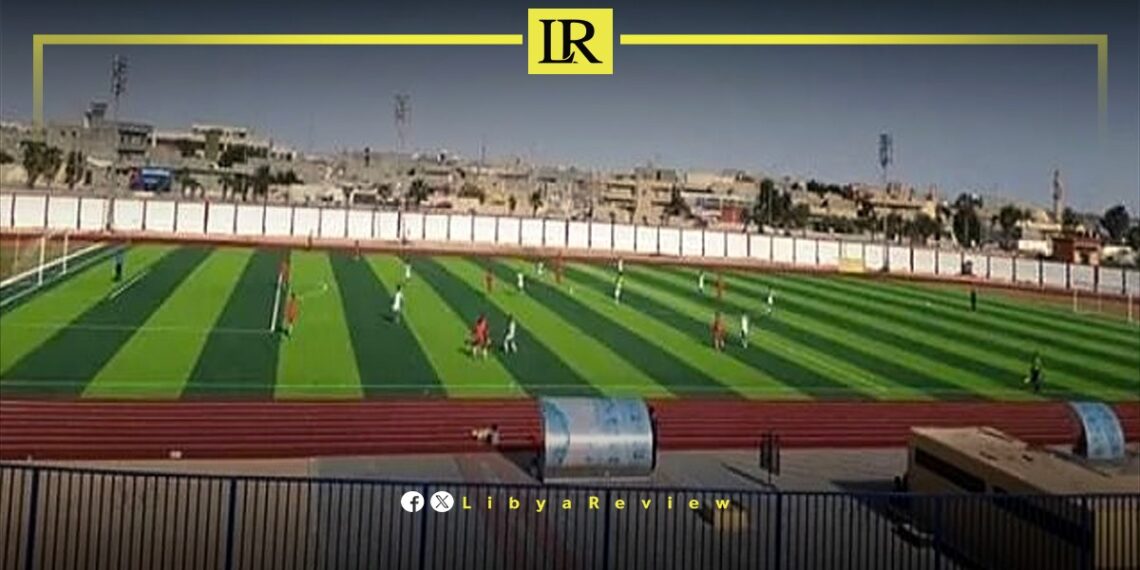The Ministry of Sports has announced the completion of development and renovation works at the Ajdabiya Sports City Stadium, part of the “Return to Life” initiative.
The maintenance work included upgrading the stands, full lighting systems, changing rooms, and both external and internal aspects of the stadium. It is now ready to host official matches in its new form.
The stadium is among several projects that the ministry has contracted with various companies across the country, aiming to modernize, develop, and rehabilitate infrastructure in several cities and sports facilities.
Notably, Libya is setting the stage for the construction of three international football stadiums that meet FIFA standards, with proposed sites in the cities of Sirte, Ajdabiya, and Sabha. According to reports from Libyan media sources, these developments are part of the Libyan government’s initiative to boost sports infrastructure within the country.
The National Development Authority of Libya, through its official Facebook page, announced that these stadiums are integral to its investment plans in the sports sector. The authority is currently finalising arrangements to commence the construction of these FIFA-compliant facilities in the designated cities.
The authority has also issued a call to all international technical firms specialised in stadium construction and accredited by the International Football Association (FIFA), inviting them to submit their proposals before the commencement of these projects. These initiatives are expected to significantly enhance the sports infrastructure and football facilities across Libya.
This announcement comes after the reopening of the 11 June Stadium in Tripoli last March, one of the country’s largest stadiums, which had undergone extensive expansion and maintenance work for over two years. These efforts reflect Libya’s commitment to revitalising its sports infrastructure and providing enhanced facilities for football and other sports activities.
Libya has been in chaos since a NATO-backed uprising toppled longtime leader Muammar Gaddafi in 2011. The county has for years been split between rival administrations.
Libya’s economy, heavily reliant on oil, has suffered due to the ongoing conflict. The instability has led to fluctuations in oil production and prices, impacting the global oil market and Libya’s economy.
The conflict has led to a significant humanitarian crisis in Libya, with thousands of people killed, and many more displaced. Migrants and refugees using Libya as a transit point to Europe have also faced dire conditions.
The planned elections for December 2021 were delayed due to disagreements over election laws and the eligibility of certain candidates. This delay has raised concerns about the feasibility of a peaceful political transition.


